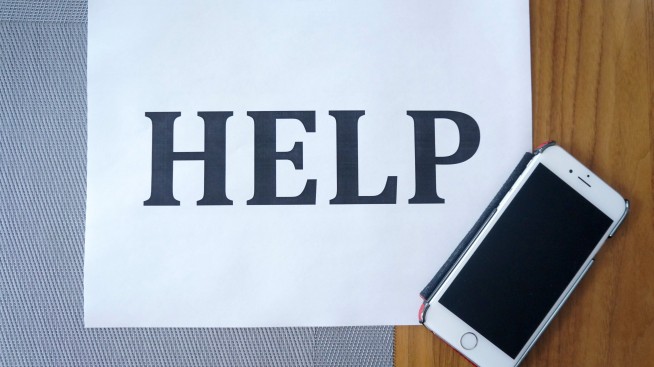I met a superhero the other day.
This superhero doesn’t have an invisible plane like Wonder Woman. She’s not super bendy like Elastigirl, and she can’t make a tornado appear out of thin air like Storm. This superhero saves lives every single day. Even when she’s asleep.
How does she do all this? Unlike Xena: Warior Princess, this hero is not armed with a Chakram. She does it all with a cell phone.
This hero is Nancy Lublin, who launched Crisis Text Line (CTL), a nonprofit based in New York City that offers crisis counseling via text message, mostly to teens and young adults in late 2013. To date, CTL has saved the lives of at least 400 teens at imminent risk for harm.
In addition to this new endeavor, Lublin is CEO and “Chief Old Person” (her chosen title) of DoSomething.org, the largest organization for teenagers and social change in America. In 2011, as DoSomething began using texting as their primary means to communicate with teenagers around the country, they started getting significantly more engagement. This included personal messages asking for help.
In August of that year one girl sent the following text to a DoSomething staffer: “He won’t stop raping me. He told me not to tell anyone. It’s my dad. Are you there?” This was the catalyst for Crisis Text Line. Lublin sprang into action and began developing the service almost immediately.
When I spoke with Bob Filbin, thirty-one, the Chief Data Scientist at Crisis Text Line, he mentioned that since CTL began late last year the volunteers who staff the service have handled nearly 4 million text messages. They have helped teens struggling with anxiety, depression, suicidal ideation, physical and sexual abuse, bullying, substance abuse disorders, eating disorders as well as many other difficulties. At present, they are responding to approximately 15,000 texts per day. They are currently at 300 volunteers but are in desperate need of more in order to handle the growing demands of teens in crisis. CTL’s goal is to respond to every text sent within five minutes. At present the average wait time for a response is 4.6 minutes. This is an extraordinary achievement, especially when considered more traditional phone-based crisis centers, which have a significant drop rate due to long wait times.
According to Filbin, the main reason that the service has been so successful is that texting is private, so it is the ideal way for many people in danger or in pain to communicate their needs quickly. Moreover, texting is the primary means of communication for teens. In her widely circulated TED talk, Lublin mentions that teenagers send an average of 3,339 text messages per month: “Unless she’s a girl, in which case the number is closer to 4,000”. Lublin notes that teens open nearly all the texts that they receive: “Texting has a 100% open rate.” In contrast to being used only by teens of privilege, “Texting actually over indexes for minority and urban youth.”
The Revolution Has Just Begun
All of this life-saving help is truly extraordinary. Yet, the real revolution has only just begun. CTL has only six staff members. In addition to Filbin, CTL employs two full-time engineers, which means that 50% of their staff is trained in using data technology. Lublin and her staff hope to be able to use the data derived from CTL to influence public policy in order to prevent crises before they take place.
The data that is being collected by CTL is real time and may allow for officials and parents to intervene before teenagers are in acute distress. A brief review of data derived from CTL, indicates that suicidal thinking in teens across America peaks between 6 and 7 am and again between 6 and 8 pm. Geographically, anxiety is concentrated in New England, while depression is more evenly distributed across the nation. Moreover, depression is reported three times as much in El Paso as in Chicago, and sexual abuse is most common in Mississippi, Iowa, and Montana. Data like this can help policy makers, clinicians and parents to plan appropriate interventions and make services available to families and schools before the teenagers are in crisis.
As Lublin says: “I am really excited about the possibility about the power of data and the power of texting to help that kid go to school, to help that girl stop cutting in the bathroom and absolutely to help that girl whose father is raping her.”
And how about you my dear reader? How can you be a Superhero?
What’s one thing that you can do to help save the world even a little bit?
@DrBenMichaelis (Click to Tweet!)
 Dr. Ben Michaelis is a clinical psychologist in full-time private practice in Manhattan. Dr. Michaelis writes and speaks regularly about mental health, creativity, spirituality and motivation. Dr. Michaelis is the author of Your Next Big Thing: 10 Small Steps to Get Moving And Get Happy. You can get the 1st chapter of his book by signing up here . You can follow dr. Michaelis on Twitter.
Dr. Ben Michaelis is a clinical psychologist in full-time private practice in Manhattan. Dr. Michaelis writes and speaks regularly about mental health, creativity, spirituality and motivation. Dr. Michaelis is the author of Your Next Big Thing: 10 Small Steps to Get Moving And Get Happy. You can get the 1st chapter of his book by signing up here . You can follow dr. Michaelis on Twitter.












